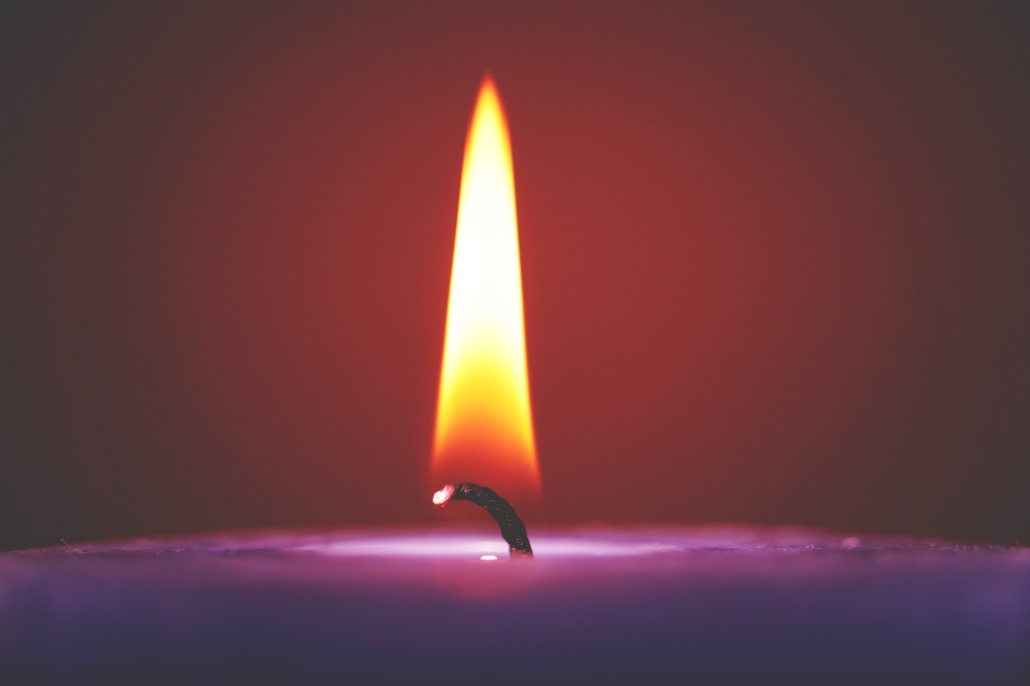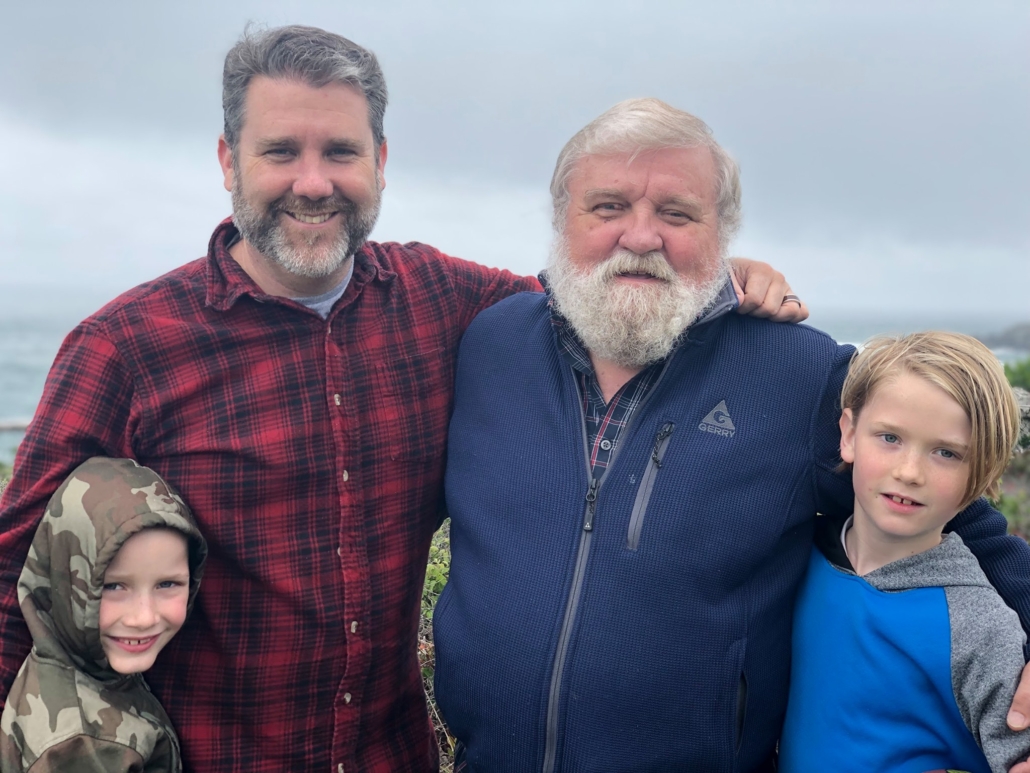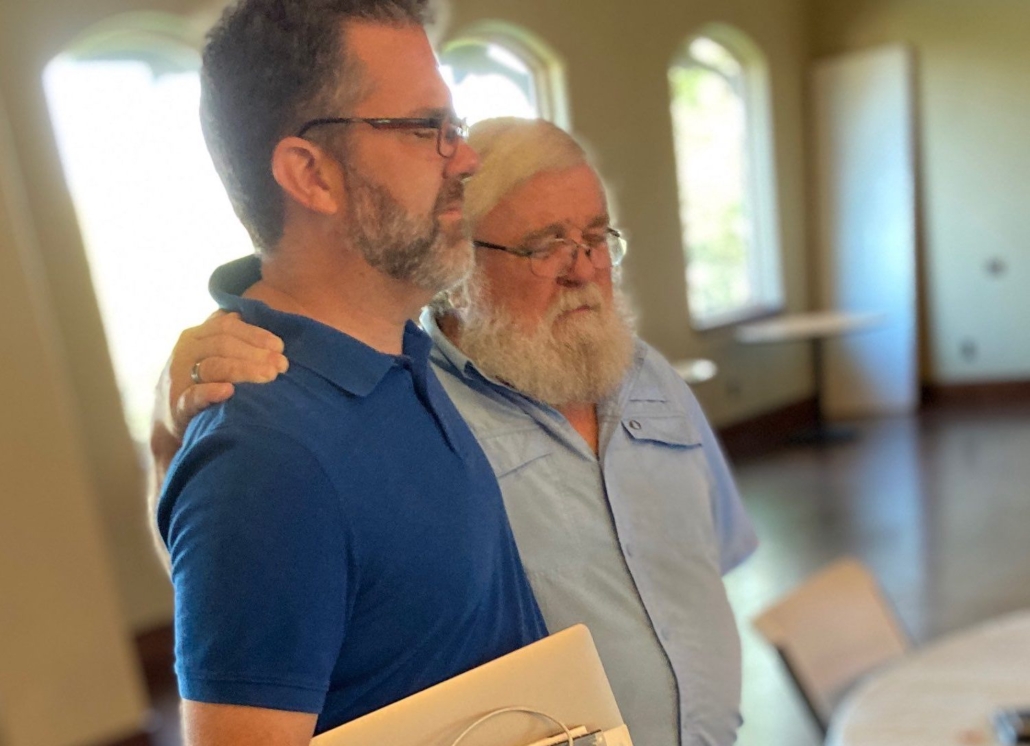The Things We’re Waiting For
I almost lost my dad last week. Covid-19 knocked over his door and pushed him into the I.C.U. He was alone in there for days and days. Even my mom, his wife of fifty-one years, could not be with him.
I think of my dad and all those like him, forced into cruel medicinal isolation for their own lives’ sake. They lie face up in their confusion, tangled in tubes and ominous beeping. They have to work, now, even for their breath—something that’s always been free to them before. Their loved are kept away, and even the empathy of nurses, the fallback comfort of the afflicted, is hidden from them behind sterile masks. How many thousands have slipped away in that lonely anguish?
I think of all this, and shake my head. Because it’s not supposed to be this way. And one day, it won’t.
***

We need to get one thing straight: Advent is not Christmas. Christmas is about celebration. Advent is about waiting for that celebration.
Every December, Christians of every shade get busy waiting. We do it by lighting candles and reflecting on the meaning of hope. We put ourselves in the shoes of two ancient women: Mary and Elizabeth, the unlikeliest mothers that ever were. Both women received a promise from upstairs, and both had to wait receive it. Their sons would turn the world on its head: John would prepare the way, and Jesus would open the gates of a kingdom with no limits.
So these two cousins, what did they do? They got busy waiting.
There’s a reason we call pregnant women “expectant.” I remember when Sara was pregnant with our oldest. I remember getting the nursery ready. The baby showers, the bassinet, the jogging stroller, and the teddy bears.
We got all ourselves ready, too. We read books, sought advice, and asked for grace. My dear wife was uncomfortable (duh), but to borrow a phrase I often hear women say of one another, she was also glowing.
Waiting is not a popular hobby. But when you’re expecting something wonderful, it takes the shape of joy.
You can choose to wait without expectation, of course, but it isn’t pretty. There’s a specific word we use in English for that kind of waiting. We call it loitering.
I remember how I used to loiter in Broadway Square Mall in Tyler, Texas. I didn’t shop. I didn’t have a plan. I would just go there with my friends and wait. For what? For nothing. I was just there, existing. I remember once, going to the music store with my cousin, and I passed some kid about my age. He spun around and yelled, “hey man, you’re walkin’ too close to me!” I didn’t turn around, so he said it again, only louder, and more Vanilla Ice-ish. I ignored him again.
That was the day I realized what a dismal place the mall was.
But this, I fear, is how too many of us roll. We loiter through life, breathing and out, waiting to die. We go to work every day and look forward to nothing except for maybe the weekends. Maybe there will be enough diversions to numb the longings buried in bellies. Maybe we can exist for long enough to find something like meaning. But until then, you can find us on a bench between the food court of presidential politics and the Sun Glasses Hut of Netflix.
But there is a better way.
I am waiting for something very specific. You can call me a fool, I don’t care, because I’ve made up my mind: I am waiting for the return of the one who was born to Mary in a manger. She waited for his first advent; his arrival. I await the second. This is the truth that defines me most in this life.
Why do I wait for Him? Because when He comes, I believe He will bring with Him the restoration of all things. All the broken places will be made new.
This, I believe, is the reason we have all these longings in the first place. As Mr. Lewis pointed out, we don’t ache for things that aren’t real. We don’t desire a thing unless that thing actually exists. So why would our stubborn hearts go on like they do, continuing to cry out for a relief to all suffering, unless that relief is coming? Why do we desire justice? Why peace? Why forgiveness? Why connection? Why do we long to be fully known and fully loved?
It’s because those things are on the way. Christ has come, and He’s coming again.
Today, we work toward healing in all it’s forms, because that’s what He will do. But we will always come to the end to our efforts. We are human. Limited.
When Christ returns, He will finish it all. We won’t have to rely on vaccines and ventilators because viruses will be eradicated. Disease will be undone. Pandemics will be forgotten. Our father will never again ache alone in houses of suffering. The pain, the terror, the isolation… all of it will be a distant dream.
***

My dad didn’t die last week. He’s home resting now with my mom. I talked to him yesterday, and he’s giddy like Lazarus, grateful for the gift of every new breath. I heard him laugh and he sounded like Santa Claus, the man who he’s always mistaken for, and a tear came to my eye.
Dad’s rally is not the final restoration, I know. We are the lucky ones. One day, I will still have to let go of him, just as thousands have let go of their fathers these wretched months. But his turnaround, like every temporal healing, is a foretaste of what is to come, when all will be made new.
I ache for that reality, but I ache with joy. I am expectant, with my friends, Mary and Elizabeth, and with all those who call upon the name of Christ this Advent season. Together, we close our eyes and pray the prayer of Julian of Norwich: “All shall be well, and all shall be well, and all manner of things shall be well.




This is just beautiful. Your writing is sensitive, inteligent, and moving. I am so glad that your dad is doing better. May you all have a blessed Christmas.
Wonderful words of hope. Prayers for your dad’s continued recovery. Your writings are inspiring to me.
Thanks Jason – good to read in these hard times. Happy Christmas to you and your family.